Floating City Project
Thursday, February 13th, 2014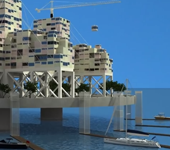 A fresh start on a floating city could be just a few years away, according to the Seasteading Institute. They have been conducting research into the potential for permanent, innovative communities – floating at sea. Being more decisive and financially strong than Ecoboat, they are able to apply this foundation of knowledge and their network towards
A fresh start on a floating city could be just a few years away, according to the Seasteading Institute. They have been conducting research into the potential for permanent, innovative communities – floating at sea. Being more decisive and financially strong than Ecoboat, they are able to apply this foundation of knowledge and their network towards
- An actual design
- Additional efforts to determine specific needs and desires of potential customers
- Selecting a practical location for what could become the world’s first city at sea.
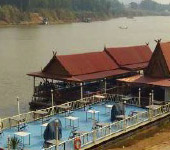 Het Essay in De Ingenieur van 12 juli 2013 is een pleidooi voor het redden van een waardevolle traditie in Thailand. Thailand kent op het platteland een traditie van drijvende huizen die nu verloren dreigt te gaan, terwijl het land regelmatig overstroomt. Waterarchitect Bart van Bueren pleit voor een herstel van het oude volksgebruik, dat volgens hem bij uitstek is aangepast aan weersextremen.
Het Essay in De Ingenieur van 12 juli 2013 is een pleidooi voor het redden van een waardevolle traditie in Thailand. Thailand kent op het platteland een traditie van drijvende huizen die nu verloren dreigt te gaan, terwijl het land regelmatig overstroomt. Waterarchitect Bart van Bueren pleit voor een herstel van het oude volksgebruik, dat volgens hem bij uitstek is aangepast aan weersextremen. 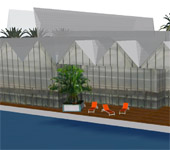 Een waarlijk multifunctionele drijvende kas staat nu op de
Een waarlijk multifunctionele drijvende kas staat nu op de 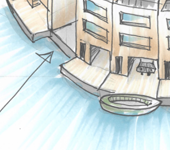 Circa vijftig studenten van de Hogeschool Rotterdam maakten een ontwerp voor een drijvende woonwijk in de Maashaven. Centrale opgave voor de 1e-jaars studenten Watermanagement in de module “Waterstad” was het realiseren van een woonwijk met minimaal 200 drijvende woningen. Ook een stadspark, een parkeervoorziening en winkelvoorzieningen moesten geïntegreerd worden in het plan.
Circa vijftig studenten van de Hogeschool Rotterdam maakten een ontwerp voor een drijvende woonwijk in de Maashaven. Centrale opgave voor de 1e-jaars studenten Watermanagement in de module “Waterstad” was het realiseren van een woonwijk met minimaal 200 drijvende woningen. Ook een stadspark, een parkeervoorziening en winkelvoorzieningen moesten geïntegreerd worden in het plan. 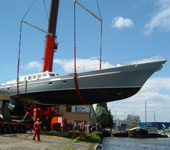 Groningen, Friday July 16, 2010, Wubbo Ockels’ Ecolution touched water for the first time. Whereas Ecoboat (www.ecoboot.nl) is mainly a way of thinking about sustainability, the boat Ecolution actually realizes sustainability. Wind power is literally and figuratively the driving force for sustainability on board. While sailing, the propellers drive their generators (which can also act as motors) to recharge the batteries. One day of sailing stores enough energy for up to 10 days of comfortable living on board. More information on
Groningen, Friday July 16, 2010, Wubbo Ockels’ Ecolution touched water for the first time. Whereas Ecoboat (www.ecoboot.nl) is mainly a way of thinking about sustainability, the boat Ecolution actually realizes sustainability. Wind power is literally and figuratively the driving force for sustainability on board. While sailing, the propellers drive their generators (which can also act as motors) to recharge the batteries. One day of sailing stores enough energy for up to 10 days of comfortable living on board. More information on 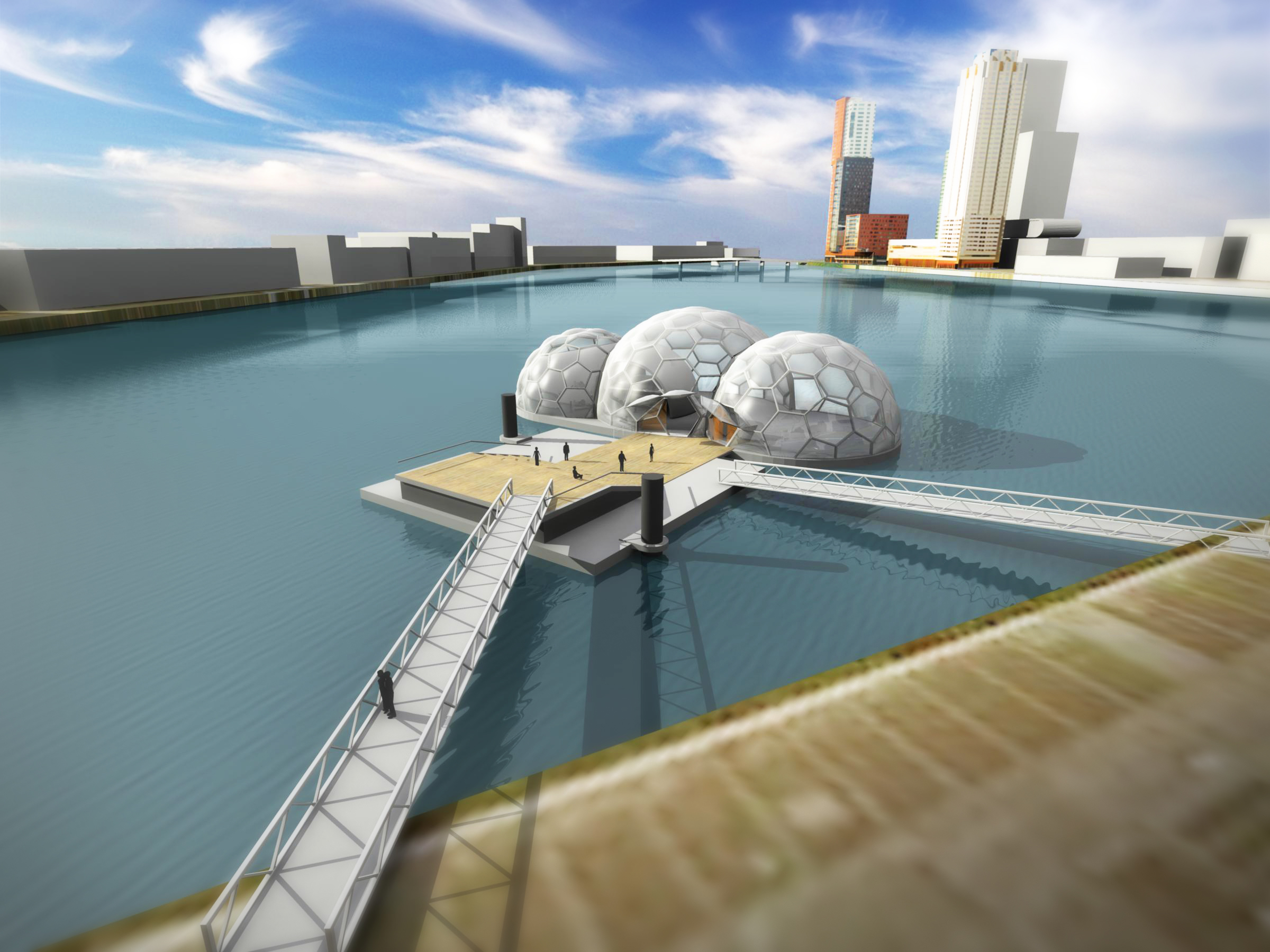
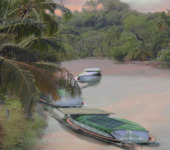 Captain Santiago Ferro would like to fly you by water plane to a nice vacation in one of his eco-resorts floating on the Amazon or on Lake Tota in Colombia. But first he needs some help in working out his plans to use the energy from the sun and from the flowing water to create comfort in his eco-resorts. For the inhabitants of the Andes it would be a nice way generating income; a good alternative for growing coca. For the ecologically concerned tourist it would be an exceptional way to enjoy the beauty of the high waters in South America.
Captain Santiago Ferro would like to fly you by water plane to a nice vacation in one of his eco-resorts floating on the Amazon or on Lake Tota in Colombia. But first he needs some help in working out his plans to use the energy from the sun and from the flowing water to create comfort in his eco-resorts. For the inhabitants of the Andes it would be a nice way generating income; a good alternative for growing coca. For the ecologically concerned tourist it would be an exceptional way to enjoy the beauty of the high waters in South America.